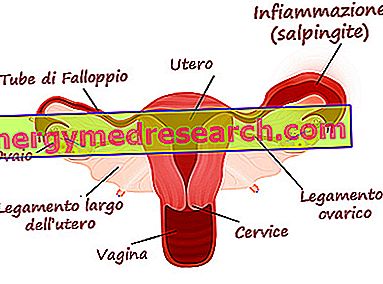PENTACARINAT ® is a drug based on Pentamidine isethionate
THERAPEUTIC GROUP: Antiparasitic
IndicationsAction mechanismStudies and clinical effectiveness Usage and dosage instructionsWarnings Pregnancy and lactationInteractionsContraindicationsUndesirable effects
Indications PENTACARINAT ® Pentamidine
PENTACARINAT ® is a medicinal product indicated in the prevention and treatment of Pneumocystis carinii pneumonia in patients with a strongly compromised immune system and in the treatment of African Leishmaniasis and Trypanosomiasis.
Mechanism of action PENTACARINAT ® Pentamidine
PENTACARINAT ® is an antiprotozoan based on Pentamidine, an active ingredient used not only in the treatment and prevention of Pneumocystis carinii pneumonia but also in the course of other protozoal diseases such as Leishmaniasis and Trypanosomiasis.
In the face of a clinical use now consolidated over the years, the biological mechanisms of the action of the drug are not entirely characterized, although it seems possible the interaction of the active principle with biolomecules such as DNA and RNA with the consequent impairment of capacity biosynthetic and the inevitable death of the parasite.
The use of the solution to be sprayed, allows Pentamidine to easily reach the pulmonary environment at pharmacologically active concentrations, such as to guarantee a prolonged therapeutic action over time, with an estimated half-life of around 30 days, which evidently sees the participation of the macrophage component, in the constant release of the drug.
Instead, the use of the drug by parenteral route allows Pentamidine to reach different tissues, concentrating however mainly at the level of the filter organs such as the liver and kidney, to be subsequently gradually eliminated mainly with the urine.
Studies carried out and clinical efficacy
ANALOGUES OF PENTAMIDINE
Curr Med Chem. 2012; 19 (34): 5819-36.
Study that includes the importance of scientific research in identifying Pentamidine analogues with greater therapeutic efficacy in the face of reduced cytotoxicity, which can therefore be used more frequently in common clinical practice.
ANTI-INFLAMMATORY ACTION OF PENTAMIDIN
J Neuroinflammation. 2012 Dec 23; 9: 277.
Interesting experimental study that demonstrates the effectiveness of pentamidine in controlling the symptomatology and the histological picture of acute colitis in laboratory guinea pigs. This evidence could open the doors for a possible anti-inflammatory activity of the drug.
PENTAMIDINE AND ACUTE RENAL FAILURE
Case Rep Transplant. 2013; 2013: 907593.
Interesting study that demonstrates the appearance of a serious clinical complication, usually associated with intravenous administration of Pentamidine, following the inhaled use of the drug, such as acute renal failure.
These studies emphasize the importance of considering all possible drug-related adverse reactions.
Method of use and dosage
PENTACARINAT ®
Powder for solution for injection or to be sprayed from 300 mg of Pentamidine isethionate.
The use of PENTACARINAT ® both by air but especially by parenteral route must necessarily be supervised by qualified medical personnel, who, taking into account the physiopathological conditions of the patient, the severity of his clinical picture and above all the type of parasitosis present, must adequately define the dosage and timing of drug administration.
Warnings PENTACARINAT ® Pentamidine
The use of PENTACARINAT ®, especially when performed parenterally, must necessarily be carefully supervised by medical personnel given the serious side effects associated with therapy.
Monitoring of cardiac activity, arterial pressure, markers of hepatic and renal function, hematology and water-electrolyte balance is necessary during the entire treatment in order to control the efficacy and safety of the therapy, limiting in this way the possible occurrence of clinically relevant side effects.
For the same reason PENTACARINAT ® should be used with particular caution in patients with liver disease, nephropathy and haematological changes.
The use of PENTACARINAT ® by inhalation should be carried out with great care even in patients suffering from respiratory dysfunction.
During the entire therapy, it would still be advisable to implement all the health and hygiene regulations designed to control the potential spread of pathogens in the environment.
PREGNANCY AND BREASTFEEDING
Given the absence of studies able to fully characterize the safety profile of Pentamidine for fetal health and known some case reports reporting the abortigenic action of the same active ingredient taken in pregnancy, the use of PENTACARINAT ® is contraindicated during pregnancy and in the subsequent period of breastfeeding.
Interactions
Although the pharmacokinetic studies currently available are not such as to characterize all the possible clinically noteworthy drug interactions, considering the potential biological and collateral effects of Pentamidine, it would be appropriate to avoid the simultaneous intake of drugs capable of altering liver function, renal, respiratory and cardiovascular.
Contraindications PENTACARINAT ® Pentamidine
The use of PENTACARINAT ® is contraindicated in case of hypersensitivity to the active ingredient or to one of its excipients, during pregnancy and lactation.
Undesirable effects - Side effects
PENTACARINAT ® therapy is not devoid of clinically relevant side effects, which could affect the metabolic aspect with hyperazotemia, hypertransaminasemia, hypoglycemia, hyperglycemia, hyperkalemia, hypocalcemia, hypomagnesemia, cardiovascular activity with lengthening of the QT interval and hypertension, the hematological aspect with pancytopenia and the nervous system.
The potential cutaneous and non-side effects associated with hypersensitivity reactions to the drug are not too rare.
The most commonly observed adverse reactions following respiratory use of Pentamidine are predominantly concentrated at the respiratory level, with dyspnea, bronchospasm and cough.
Note
PENTACARINAT ® is a drug subject to mandatory medical prescription.



